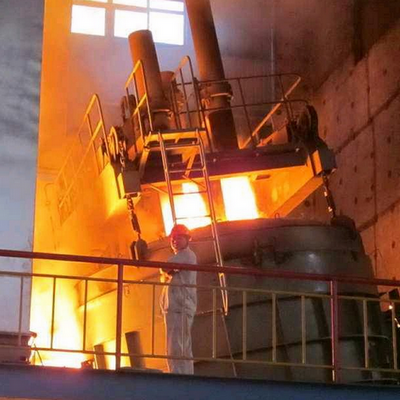Electrolysis is a technique that uses an electric current to drive a non-spontaneous chemical reaction. It involves the splitting of compound molecules into their constituent ions or elements using the process of oxidation and reduction. Graphite electrodes play a crucial role in facilitating electrolysis through their unique properties, such as high electrical conductivity and chemical stability.
Why graphite electrodes are used in electrolysis?
Electrolytic cells consist of two electrodes immersed in an electrolyte solution. The electrode connected to the positive terminal of the power supply is called the anode, while the electrode connected to the negative terminal is referred to as the cathode. When an electric current passes through the electrolyte solution, cations move towards the cathode, while anions move towards the anode. This movement leads to the desired chemical reactions and product formation.
I:Graphite electrodes own excellent electrical conductivity.
From the graphite chemical formular we can know graphite is a form of carbon that has a unique arrangement of atoms, with the electrons delocalized over the entire structure. This delocalization allows graphite to conduct electricity effectively. When graphite electrodes are used in an electrolytic cell, the electric current is easily conducted through the electrode, enabling the movement of ions and the desired chemical reactions to take place.
II:Graphite electrodes offer chemical stability.
Electrolysis often involves harsh chemical reactions that can cause corrosion or degradation of the electrodes. Graphite, however, is highly resistant to chemical attacks. It does not react with most electrolytes, making it a reliable choice for prolonged use in electrolytic cells. This chemical stability ensures that the electrodes maintain their structure and performance over extended periods, making them cost-effective in industrial applications.
III:Graphite electrodes provide a large surface area for the desired reactions to occur.
The electrodes used in electrolysis are typically in the form of large plates or rods. Graphite’s layered structure allows for the intercalation of ions, providing more contact points for chemical reactions. This increased surface area enhances the efficiency of electrolysis and allows for faster production rates.
IV:Graphite electrodes offer low resistance to the flow of electricity.
The resistance in an electrolytic cell can lead to energy losses in the form of heat. However, graphite’s structure and conductivity minimize these losses, reducing the overall energy consumption of the electrolysis process. This electrical efficiency is essential for large-scale industrial applications where energy costs and environmental impact are significant considerations.
V:Graphite electrodes supply perfect mechanical strength and stability.
Electrolytic cells often operate under high temperatures and pressures, which can exert significant stress on the electrodes. Graphite’s inherent strength allows it to withstand these conditions without deformation or degradation. Its stability ensures that the electrode’s shape and structure remain intact, ensuring consistent and reliable performance.
VI:Graphite electrodes application is versatile.
In various electrolytic processes. Graphite electrode can be employed in the production of chlorine, aluminum, copper, and various other chemicals and metals. The flexibility of graphite electrodes in terms of size, shape, and configuration allows them to adapt to different electrolytic cell designs, providing ease of use and compatibility with existing infrastructure.
VII:Graphite electrodes are environmentally friendly.
Compared to alternative electrode materials. Many other electrode materials, such as lead or other metals, can result in toxic by-products during electrolysis. Graphite, on the other hand, is a non-toxic and abundant resource, making it a more sustainable and eco-friendly choice.
Graphite electrodes properties make them ideal for facilitating the desired chemical reactions and product formation in electrolytic cells. As the demand for electrolysis grows across different industries, graphite electrodes will continue to play a pivotal role in enabling efficient and sustainable electrochemical processes.
Post time: Aug-03-2023








